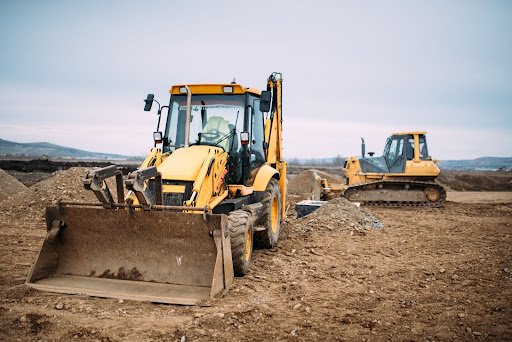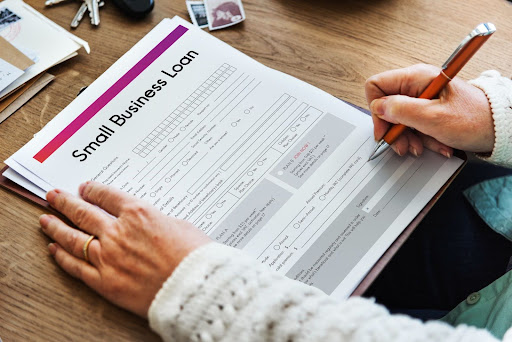Acquiring essential equipment is one of the most important—and often most expensive—steps for small business owners looking to grow or streamline operations. Whether you need machinery, vehicles, technology, or tools, purchasing equipment upfront can place a significant strain on your cash flow. That’s why many businesses turn to financing solutions to access what they need without large out-of-pocket costs.
As you explore your options, you’ll likely encounter two common structures: equipment lease agreements and equipment financing agreements (EFAs). While both help businesses secure vital assets, they differ significantly in terms of ownership, cost structure, tax benefits, and long-term flexibility.
In this blog post, we’ll break down the differences between EFAs and leases, examine the pros and cons of each, and help you decide which financing method is the best fit for acquiring essential equipment for your business.
Equipment Leasing vs. Equipment Financing: Similarities and Differences

Equipment leasing and equipment financing agreements are two terms used to describe a similar method of funding your investment—but they function differently in practice.
An EFA is essentially a business equipment loan that you repay over time. You may not borrow the full purchase price of equipment all at once, but instead, you pay off what you owe in a series of installments. This type of equipment financing is a good option if you want a traditional equipment loan but don’t have any collateral to put up. The relationship is between a lender and a borrower (you).
In equipment leasing agreements, the equipment is purchased by a third-party company that leases the equipment to your business. You then make monthly payments to the equipment financing company to use the equipment.
Leasing equipment is advantageous because it allows you the benefit of equipment ownership while eliminating a large initial capital outlay. It is also beneficial for equipment that may not be used as frequently or equipment that is needed for special projects.
However, equipment leasing can be expensive if your equipment needs are sporadic because the equipment financing company will need to offset costs over time with stable equipment users. Leasing equipment can also be more complex than equipment financing agreements, as owners may need to file equipment titles with their state every time ownership changes hands.

Equipment Financing Agreement vs. Lease: Ownership and Liability
One of the main differences between equipment leasing and an equipment financing agreement is who actually owns the equipment at the end of the term.
In leasing agreements, the equipment financing company retains ownership of equipment. However, in an equipment financing agreement, you will own your equipment once it is fully paid for.
Leasing equipment can be of benefit if equipment ownership is not important to your business, but EFAs are helpful when liability is more important. Since leasing companies retain ownership, they also accept equipment-related risk. This means that the financing company is liable for repairs and maintenance throughout the lease term.
It is also important to consider leasing if equipment issues could cause serious problems for your business operations —such as malfunctions that shut down production lines. On the other hand, financing companies will often require EFA borrowers to take out insurance on costly equipment, transferring equipment-related risk to the owner.
Equipment Financing Agreement vs. Lease: Financial and Tax Implications
Owners need to consider how equipment-related deductions will impact their tax obligations.
Leasing companies may offer equipment owners the opportunity to take tax deductions by filling out a tax election form. This form allows lessees to count lease payments as operating expenses, which are often directly deductible, adding tax advantages.
Meanwhile, equipment financing agreements do not offer this form of write-off. Instead, they allow business owners to take advantage of Section 179 deductions for equipment purchases—especially if the equipment is used for business at least 50% of the time. EFAs also allow for depreciation deductions over time.
What Should an Equipment Financing Agreement Include?

Before signing an EFA, it’s critical to review the agreement thoroughly. A well-structured equipment financing agreement should include:
Equipment Description and Value
Make sure the equipment details (type, make, model, serial number, condition) are clearly stated, along with its full value.
Loan Amount and Payment Schedule
Your agreement should spell out the total loan amount, repayment term, initial down payment, payment frequency (e.g., monthly), and due dates.
Interest Rate and Fees
Understand the full cost of borrowing—check the interest rate (fixed or variable), origination fees, processing fees, and any penalty charges. A simple interest loan is often a good option for businesses to manage the payments associated with acquiring equipment.
Ownership Terms
Ensure it is explicitly stated that you will own the equipment outright once all scheduled payments are complete.
Insurance and Maintenance Requirements
Most EFAs require the borrower to maintain insurance coverage. Be sure to know who is responsible for maintenance, upkeep, and any necessary equipment upgrades.
Prepayment or Early Termination Clauses
Check whether you can pay off the loan early without incurring penalties and review any conditions surrounding early termination.
What to Watch Out for in an Equipment Financing Agreement
Even seemingly simple EFAs can include terms that may not be in your favor. Watch for:
- Balloon Payments: Some EFAs include a large final payment—ensure this is clearly disclosed and manageable.
- High Fees: Excessive documentation or backend fees can inflate the total cost.
- Ambiguous Ownership Language: Confirm that the agreement is not a disguised lease unless that’s your intent.
- Limited Flexibility: Rigid repayment terms can strain your cash flow if not structured appropriately.
Always read the fine print or consult with a trusted broker or legal advisor before signing.
Frequently Asked Questions About Equipment Financing Agreements

What is an equipment financing agreement?
An equipment financing agreement (EFA) is a type of commercial loan used to purchase equipment for business use. You repay the borrowed amount over time, and once the loan is paid off, you own the equipment.
Is an EFA a lease or a loan?
An EFA is a loan, not a lease. Unlike leasing, where the lessor owns the equipment, an EFA provides a clear path to ownership.
How long do equipment financing agreements last?
Most EFAs range from 12 to 72 months, depending on the value of the equipment and your business’s repayment capability.
Do EFAs require a down payment?
Some EFAs require a 10–20% down payment, but many lenders offer flexible terms depending on your credit and cash flow.
What are the benefits of using an EFA?
- You build equity and own the equipment
- Qualifies for Section 179 and depreciation deductions
- Fixed payments for easier budgeting
- Long-term asset control
Are there drawbacks to EFAs?
- You assume maintenance and repair responsibilities
- May require insurance
- Typically higher monthly payments than leases
Need Help With an Equipment Loan?
Both leasing and equipment financing agreements provide benefits, but it’s important to consider which option will work best for your needs. You can get equipment-related expertise and support from Charter Capital, a leading equipment finance company that has been helping small to medium businesses grow for more than 40 years.
Contact our knowledgeable team for any questions about equipment leasing and EFAs today. Let’s make your goals happen.

